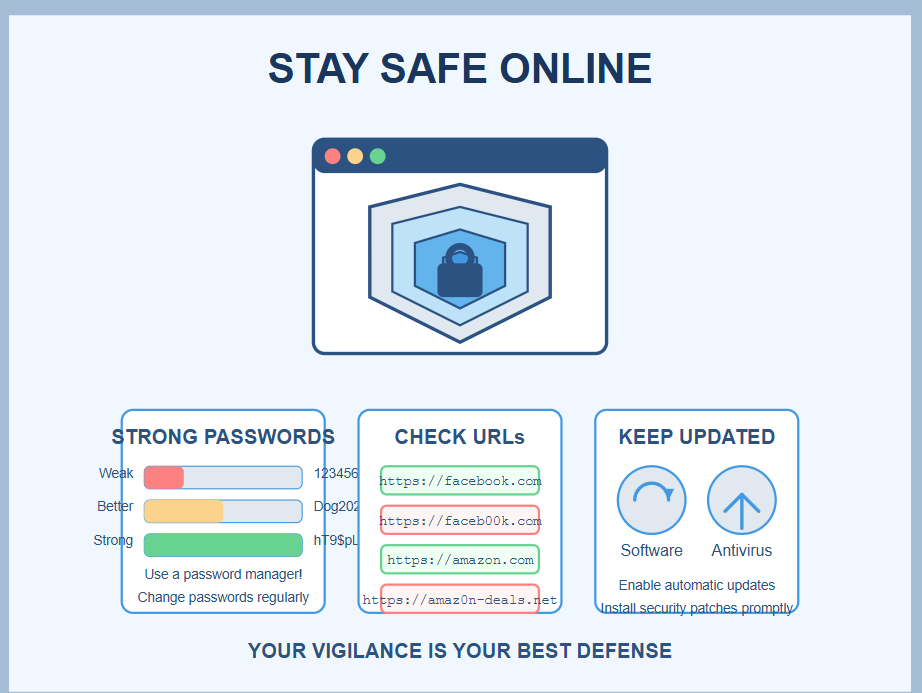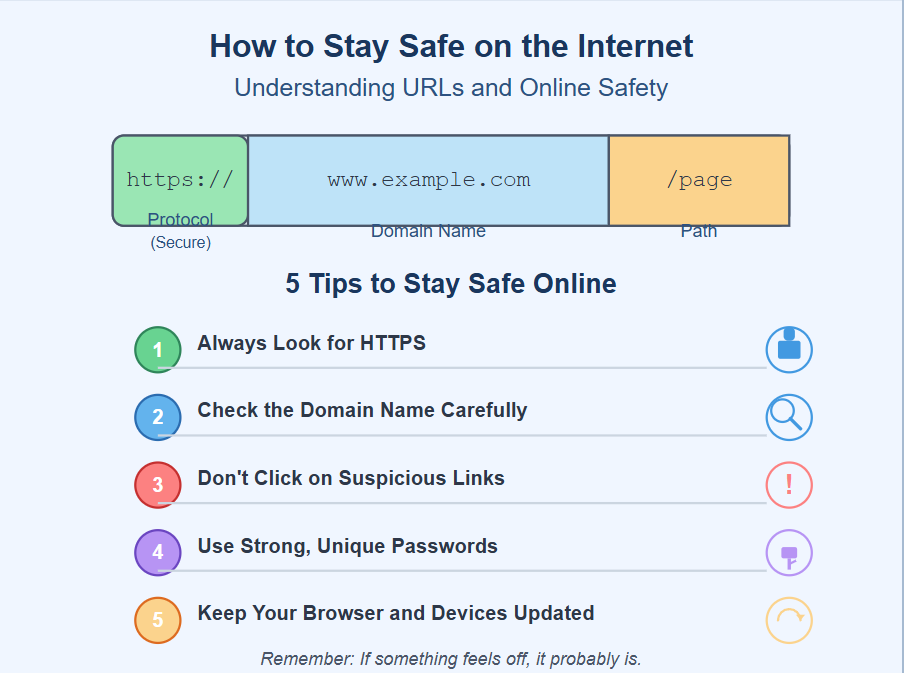
🕵️♀️ Beware: The Most Common Online Scams and How to Stay Safe
The internet has revolutionized how we shop, communicate, and work—but it has also become a playground for scammers. Online scams are more sophisticated than ever, targeting people of all ages and tech levels. Whether you’re browsing social media, checking your email, or shopping online, it's essential to recognize the warning signs and protect yourself.
💻 What Is an Online Scam?
An online scam is any fraudulent scheme conducted through the internet. Scammers use fake websites, emails, social media accounts, and even texts to deceive users into giving away personal information, money, or access to sensitive accounts.
🚨 Common Types of Online Scams
1. Phishing Emails These emails look like they come from trusted companies (like your bank or Amazon) and often include a link that leads to a fake website. Once you log in or enter your details—boom! Your data is stolen.
2. Online Shopping Scams You see an ad for a product with a price too good to be true, order it… and it never arrives. Or worse, the site disappears after you’ve entered your credit card details.
3. Romance Scams Fraudsters create fake profiles on dating sites or social media, build emotional connections, then ask for money under false pretenses—like a family emergency or a plane ticket.
4. Tech Support Scams A popup appears saying your computer is infected. You’re told to call a number, and the “tech expert” on the line convinces you to grant remote access to your computer—or pay for unnecessary software.
5. Investment & Crypto Scams Scammers promise huge returns if you invest in a “sure thing” or cryptocurrency platform. They may show fake dashboards with fabricated gains—until you try to withdraw your money.
6. Lottery & Prize Scams You’re told you’ve won a prize or sweepstakes… but first, you need to pay a "processing fee" or provide your bank details. Spoiler: there’s no prize.
🛡️ How to Protect Yourself
Never click on suspicious links – especially in emails or messages from unknown senders.
Verify websites – Look for “https://” and double-check the URL. Fake sites often mimic real ones.
Use strong, unique passwords – and enable two-factor authentication where possible.
Be skeptical of too-good-to-be-true deals – because they usually are.
Don’t send money to people you haven’t met in person – even if the story is compelling.
Update your software and antivirus – to patch security holes and detect malware.
🧠 Final Thoughts
Scammers are clever, but staying informed makes you harder to fool. Trust your instincts—if something feels off, it probably is. By spreading awareness and practicing caution, you not only protect yourself but also help others stay safe online.
Stay smart, stay safe, and when in doubt—don’t click!

